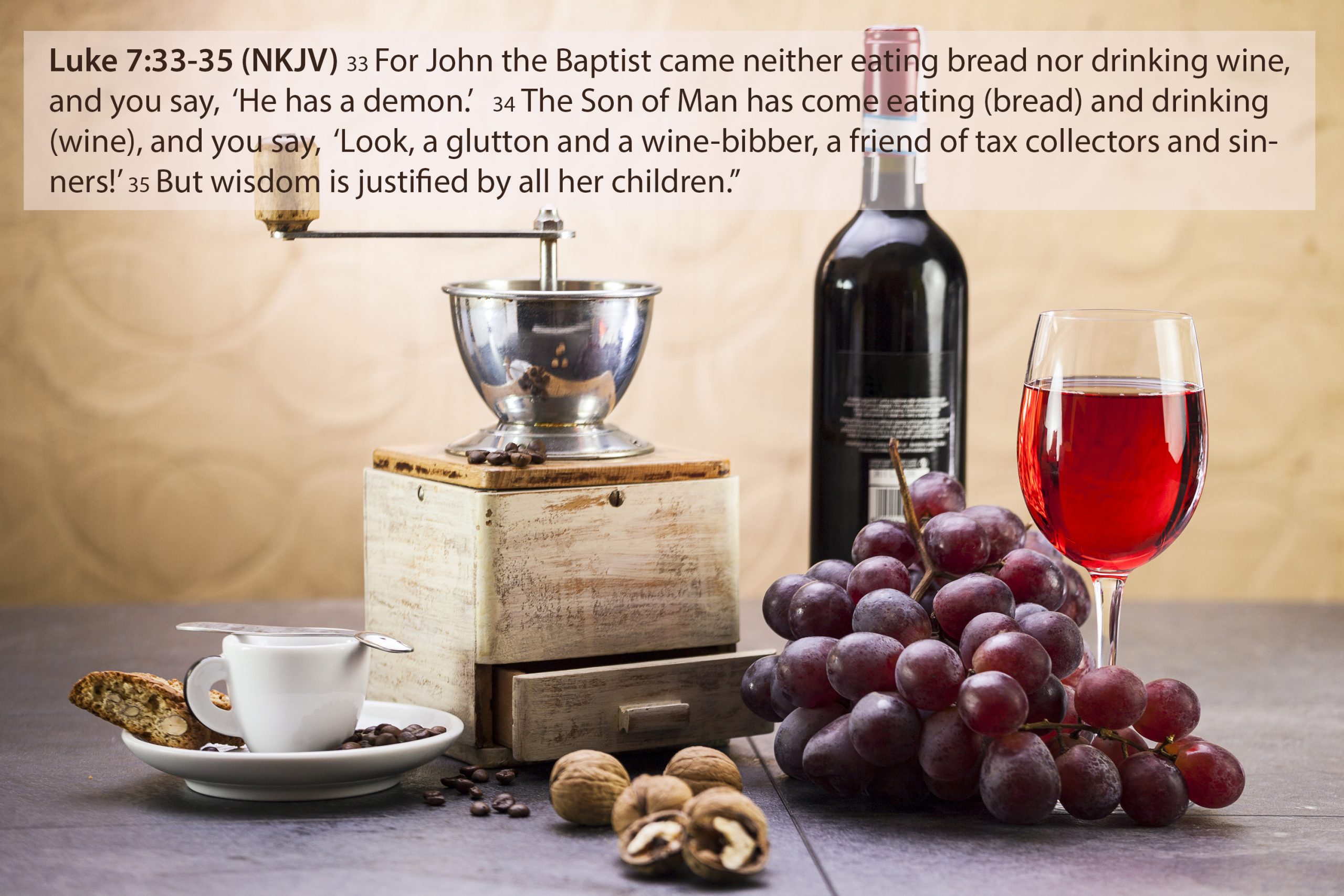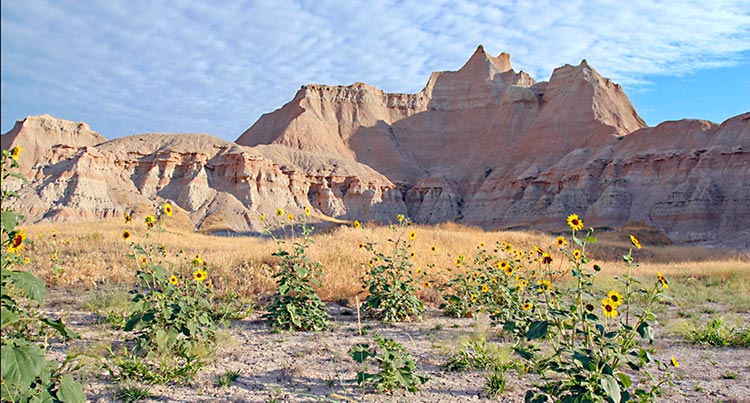Did Jesus Drink Wine, and Should We?

In Scripture, only one group of people are told never to drink alcohol, the Nazarites (Numbers 6:1-4). Jesus was not a Nazarite. Luke 18:37 tells us that Jesus was a Nazarene, a native of the town of Nazareth. Scripture never tells Bible readers that Jesus took the Nazarite vow. So did Jesus actually drink alcohol? And is it wrong for Christians today to have wine or other alcoholic drinks? Let’s take a look at Scripture.
Photo credit: Unsplash/kmellis

Jesus’ Miracle of Turning Water into Wine
Jesus’ first miracle was turning water into wine at the wedding at Cana. According to Jewish tradition, fermented wine was always served at weddings. Rather than serving fermented wine, John 2:10-11 says that the guests were astonished to receive the best wine at the end of the feast. Typically, guests would receive the best wine first, and then the lesser wine at Jewish wedding feasts would be served later. At Cana, we see Jesus serving the best wine last.
The Greek word methuo in John 2:10 means to be drunken or intoxicated and is also used in Acts 2:15, where Peter is defending the Apostles against accusations of drunkenness. The master of the wedding feast at Cana says that the wine Christ produced was available to the intoxicated people there.
The point of Jesus turning water into wine is that He doesn’t condemn drinking wine any more than He condemns eating bread or other food, as this article from Got Questions explains. Now, people do abuse alcohol as they do other substances. These acts of drunkenness and gluttony are sinful (Proverbs 23:2; Ephesians 5:18).
In Luke 7:33-44, we discover Jesus contrasting John the Baptist’s decision not to drink wine with Jesus’ own practice. Jesus goes on to respond to the religious leaders who falsely accuse Him of being a drunkard. Yet, Jesus was neither a glutton nor a drunkard because He was sinless (1 Peter 2:22).
The Passover celebration would have included fermented wine. The Bible uses the term “fruit of the vine” (Matthew 26:27-29; Mark 14:23-25; Luke 22:17-18). Christ participated in drinking from the Passover cup, which would have had fermented wine (Proverbs 14:23).
Photo credit: Unsplash/Alasdair Elmes

What Does the Bible Say about Wine?
The Bible has much to say regarding alcohol and wine. Let’s take a look at a few verses.
“Drink no wine or strong drink, you or your sons with you, when you go into the tent of meeting, lest you die. It shall be a statute forever throughout your generations” (Leviticus 10:9).
“He shall separate himself from wine and strong drink. He shall drink no vinegar made from wine or strong drink and shall not drink any juice of grapes or eat grapes, fresh or dried” (Numbers 6:3).
“You have not eaten bread, and you have not drunk wine or strong drink, that you may know that I am the LORD your God” (Deuteronomy 29:6).
“Therefore be careful and drink no wine or strong drink, and eat nothing unclean” (Judges 13:4).
“Wine is a mocker, strong drink a brawler, and whoever is led astray by it is not wise” (Proverbs 20:1).
“Woe to those who rise early in the morning, that they may run after strong drink, who tarry late into the evening as wine inflames them!” (Isaiah 5:11).
For more verses about drinking alcohol, click here.
So, does the Bible teach that alcohol is a bad thing? Or does it ever speak about it positively? Scripture does not forbid Christians from drinking wine or any other drink containing alcohol. Scripture speaks of alcohol in positive terms in Ecclesiastes 9:7. You can find other great passage on how Scripture shows wine in a positive light at this Got Questions article.
Photo credit: ©Getty Images/Andrey Elkin

What Does the Bible Teach about Drunkenness?
Scripture commands Christians to avoid drunkenness (Ephesians 5:18) and its effects (Proverbs 23:29-35). Christians are not to have their bodies mastered by anything (1 Corinthians 6:12; 2 Peter 2:19).
In New Testament times, water was not very clear or maintained in the same way as it is today. Without modern sanitation, people in Jesus’s times would have had water filled with bacteria, viruses, and all kinds of contaminants. The same is true today in many developing countries. People in Jesus’ time drank wine or grape juice because it was less likely to be contaminated.
In 1 Timothy 5:23, Paul instructed Timothy to stop drinking water only and instead drink wine, for his health. In Paul’s day, wine was fermented, meaning it contained alcohol. It’s incorrect to suggest that this was merely grape juice, but equally wrong to suggest it was the same thing as wine is today.
Scripture does not forbid the people of God from drinking beer, wine, or any other drink containing alcohol. Alcohol is not itself tainted by sin. Drunkenness and enslavement to alcohol are sinful, which is why Christians must refrain from drinking alcohol in excess (1 Corinthians 6:2; Ephesians 5:18).
Every Christian would agree that it is a sin to drink yourself into drunkenness. Christ, Himself, warns against drunkenness (Luke 14:25). A biblical view of wine is given as something to delight in, Psalm 104:14-15 teaches. Now, as this article from Got Questions explains, there are plenty of warnings against abusing alcohol or other substances in Scripture (Proverbs 20:1). Sinful humanity is more likely to abuse alcohol than to use it in moderation.
Even so, those who use Jesus’ use of wine to excuse their drunkenness need to heed His teaching in Luke 12:45. Christians who want to keep a biblically balanced view of drinking should either drink in moderation, never to drunkenness, or abstain entirely.
Photo credit: ©Getty Images/Katarzyna Bialasiewicz

Should Christians Drink Wine or Alcohol?
In Ephesians 5:18, Paul urges Christians to not get drunk on wine, leading to excess or reckless living. Paul, at first glance to Bible readers, may be giving more moral instruction to the people of God, and for sure, there is a moral dimension to his teaching there. Children of God are not to drink in excess because, as in Paul’s day and our own, being drunk lowers inhibitions and resistance to sin that leads to many dark consequences.
Even so, there is a turn in the apostle’s words here. If he were following the positive or negative substitution pattern that he presented previously in Ephesians, then we would expect him to say in Ephesians 5:18, “Do not get drunk on wine, but abstain from intoxication.” Instead, Paul says, “Do not get drunk on wine. Instead be filled with the Spirit” (Ephesians 5:18).
Paul’s language of filling is significant in Ephesians. At the end of chapter one in Ephesians 1:23, Paul says that the church is Christ’s body, “the fullness of him who fills everything in every way.” In Ephesians 3, Paul prayed that the Ephesians would know all the dimensions of the love of Christ so they “may be filled to the measure of all the fullness of God” (Ephesians 3:19). In Ephesians 4, Bible readers discover that Jesus “ascended higher than the heavens, to fill the whole universe” (Ephesians 4:10) and put his gifts in the church that they might, “become mature, attaining to the whole measure of the fullness of Christ” (Ephesians 4:13).
Christians are urged to put away wine that holds them under its influence and instead be filled with the Holy Spirit. The Apostle is encouraging the people of God to be filled with the Spirit, who fills up everything with the purpose of renewing and redeeming the universe for His glory.
Paul is urging the people of God to recognize that they have the privilege of reflecting the light of Jesus and to live in the light of the Son. Christians are to be the light of Jesus, both reflecting Him and shining the light of His presence that is our life. Paul encourages Christians with these truths so they can be filled with the radiance of Christ and His being and power since they have His identity and bear witness to these truths to others in the world.
Photo credit: ©Getty Images/Prostock-Studio

Be Filled with the Spirit
To keep Christians from merely being about doing and thinking, the apostle says in Ephesians 5:18, “Do not get drunk on wine.” The command is known here as a synecdoche, meaning a part for the whole. It refers here to emptying our lives of excessive wine in contrast to the filling of the Holy Spirit and of emptying ourselves of anything in this world that would hold Christians under its sway. Such influence by wine or other intoxicants leads to reckless living that would darken the life of light the apostle Paul has been focusing on in Ephesians.
Christians are to be filled with the Spirit. We cannot get into all the details of all that Paul means, but we can say that we need to remember the context we’ve seen so far surrounding Ephesians 5:18. The context of Ephesians 5:18 is telling Christians that they are filled with the Holy Spirit, so they are to radiate the presence of Christ to the world around them. Four participles in the Koine (biblical Greek) language describe the characteristics of those under his influence, those who speak, sing, or make music, thanksgiving, and submission to Jesus.
Christians must never forget their lives are to aim for the glory of God. Christians are not put in a relationship with the Lord or with others to tell them what to do or teach them what to know, although this is vital. Ultimately the aim of all of our knowing and doing is to bring God’s people to the person, ministry, and glory of the Lord Jesus. Our lives ought to aim to glorify God and enjoy Him forever. Christians fill the world with the knowledge of the love of Jesus by teaching and demonstrating the love of Jesus to others.
SOCIAL
Latest Activity
-
admin wrote a new post 9 years, 6 months ago
March 5, 2014 | worship Title Greek Words for Worship Continuing with our theme on the Hebrew words for worship, let’s look at the three Greek words used in the New Testament for “worship”. Just as five o […]

-
admin wrote a new post 9 years, 6 months ago
In the recently-published list, Bishop David Oyedepo, Pastor TB Joshua, Pastor Matthew Ashimolowo, Pastor Chris Oyakhilome, and Pastor Chris Okotie feature as numbers one, two, seven, eight and nine respectively. […]



